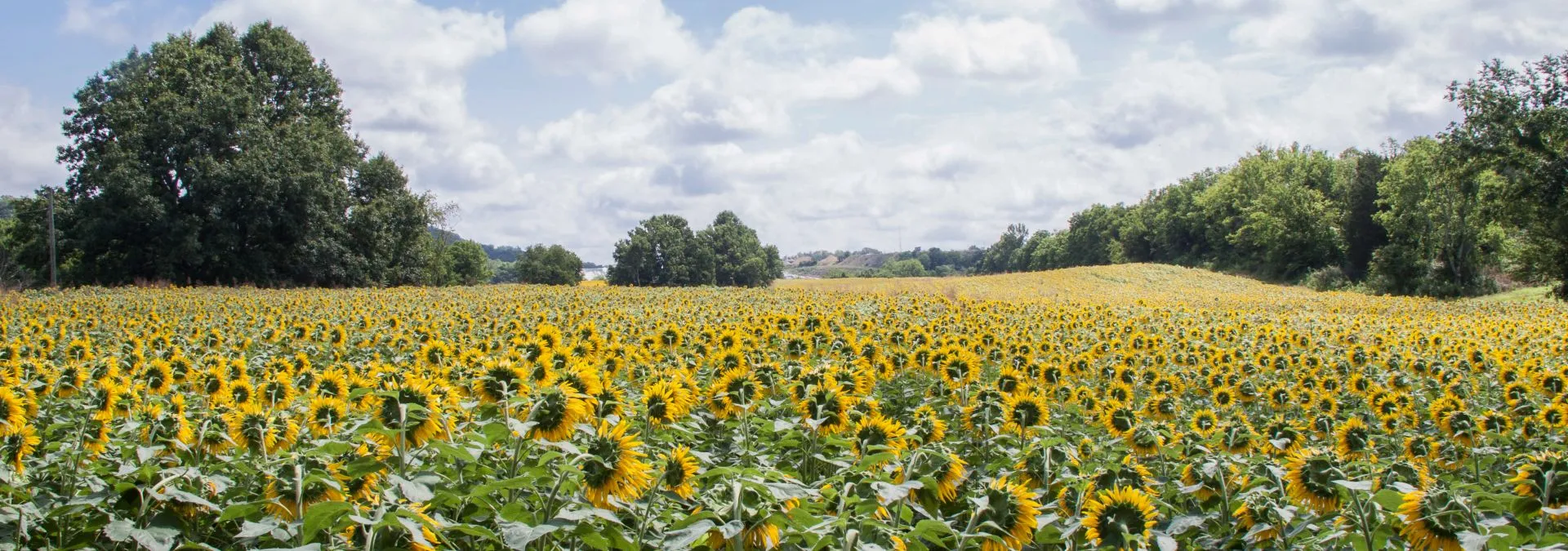Displaying items by tag: legacy parks foundation
Intergenerational Playspace open in North Knox

Legacy Parks Foundation cut the ribbon on the Intergenerational Playspace at Beverly Park in North Knox County. It is the first park in the region to be purposefully designed to create active interactions between multiple generations, especially children and seniors.
“This park was made possible by our many partners that supported and funded the project,” said Carol Evans, Legacy Parks’ executive director.
Legacy Parks was awarded a $150,000 two-phase grant from the Trinity Health Foundation to research, design and create the Playspace. Additional grants and construction services provided by Knox County made the park possible
Choose your own adventure in Knoxville’s Urban Wilderness
 Not all of the Knoxville Urban Wilderness is true wilderness, of course. This monoculture field of sunflowers planted at the Forks of the River Wildlife Management Area does, however, attract lots of wildlife. Courtesy Visit Knoxville
Not all of the Knoxville Urban Wilderness is true wilderness, of course. This monoculture field of sunflowers planted at the Forks of the River Wildlife Management Area does, however, attract lots of wildlife. Courtesy Visit Knoxville
Spring study to quantify visitation, economic impact
“It’s something special for Knoxville and defines us as a recreational community,” said city Deputy Chief of Economic and Community Development Rebekah Jane Justice. She was named the city’s first Urban Wilderness Coordinator in July 2017, and is still the city’s go-to expert on this ambitious, ongoing land-preservation and recreational project. “It’s about so many things, including building our local economy in a unique way.”
Now that the Urban Wilderness is more established, actual numbers about usage are more easily captured than when Sims authored his paper. Matthew Kellogg of the Appalachian Mountain Bike Club said that his club received an equipment grant from the International Mountain Bicycling Association for trail-counter devices to quantify how many people use the trails — and where and when. Currently Kellogg’s group is calibrating 11 newly placed trail counters in the Urban Wilderness. By spring, the group hopes to be collecting reliable data.
Among the things this data will be used for is a multi-year study by University of Tennessee kinesiology and recreation professor Eugene Fitzhugh, a frequent lecturer about urban trails their impact on a community’s physical activity.